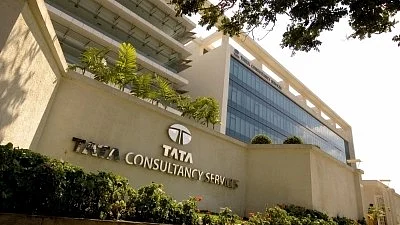IT firm Tata Consultancy Services (TCS) is being sued by a former employee in the United States for racial discrimination against non-south Asian and non-Indian applicants and employees.
Who is the complainant? Shawn Katz, a former TCS employee, is a complainant in the class action lawsuit against the IT firm. Katz had reportedly been working for TCS for nine years before being let go. The case was filed in the United States District Court for the District of New Jersey on 7 December.
What does the lawsuit claim? Let's find out.
What does the lawsuit claim? The lawsuit claims that TCS has a systematic pattern of discriminating against non-South Asian and non-Indian applicants and employees “concerning hiring, staffing, benching, termination, and promotion decisions” and that this policy is implemented top-down at the company.
It alleges that TCS employs over 6,06,000 employees, of which approximately 40,000 work in the US.
While only about 12 percent to 13 percent of the United States’ IT industry (the industry in which TCS operates) is South Asian, approximately 70 percent of TCS’ United States workforce is South Asian and is primarily composed of Indians who are in the US on work visas, it alleges.
The lawsuit also alleges biases in the hiring process. The complaint states that TCS talent acquisition and third-party vendors are encouraged to hire employees of Indian origin.
"Non-Indian and non-South Asian candidates are frequently passed over for open positions and not hired due to this discriminatory practice", the lawsuit claims.
What has Katz said? Katz claimed that during his nine-year stint at TCS, despite meeting the qualifications for promotion for many years, he was never promoted. Instead, he claimed he was moved to the bench and fired.
What does the lawsuit allege about falsification of visas?
According to Katz, TCS has created an inventory of “visa-ready” workers. The firm relies heavily on H-1B and L-1 work visas to bring South Asian and Indian workers to the US.
While the H-1B visa is used to hire highly qualified workers for speciality jobs, the L-1 visa is used for intracompany transfers of those in managerial positions or with specialised knowledge. Each year, H-1B visas are limited, whereas L-1 visas are not.
The company applies for visas “for more positions than actually exist in the US,” and “also falsifies employee roles listed in its H-1B and L-1A visa applications”, the lawsuit claimed.
The lawsuit has alleged that TCS also ensures that these visa holders stay for longer in the US, by giving them higher performance reviews and promoting them more often than their US peers.
US workers are placed on the “bench” between assignments more frequently and remain there for longer periods. That makes it more likely that US workers will “languish on the bench” long enough to be fired, the lawsuit claims.
Not a First-Time Occurrence
This is not the first time that TCS has been slapped with such a lawsuit. In 2015, a similar lawsuit was filed against TCS, which the company won in 2018.
At the time, the jury determined that TCS did not have a "pattern or practice" of discriminating against non-South Asian workers.
The lawsuit against TCS was filed in 2015 by a white IT worker who claimed he was subjected to “substantial anti-American sentiment” within the company and was ultimately terminated within 20 months despite having almost 20 years of experience in the field.
Relief Sought
The reliefs sought include:
Directing TCS to adopt a valid and non-discriminatory method for hiring, promotion, termination, and other employment decisions
Not to retaliate against individuals who complain of racial discrimination, awarding damages as well as front and back pay, and more
Summons have been issued to TCS in this matter. TCS told The Quint that it can’t comment on subjudice matters.
(At The Quint, we question everything. Play an active role in shaping our journalism by becoming a member today.)
